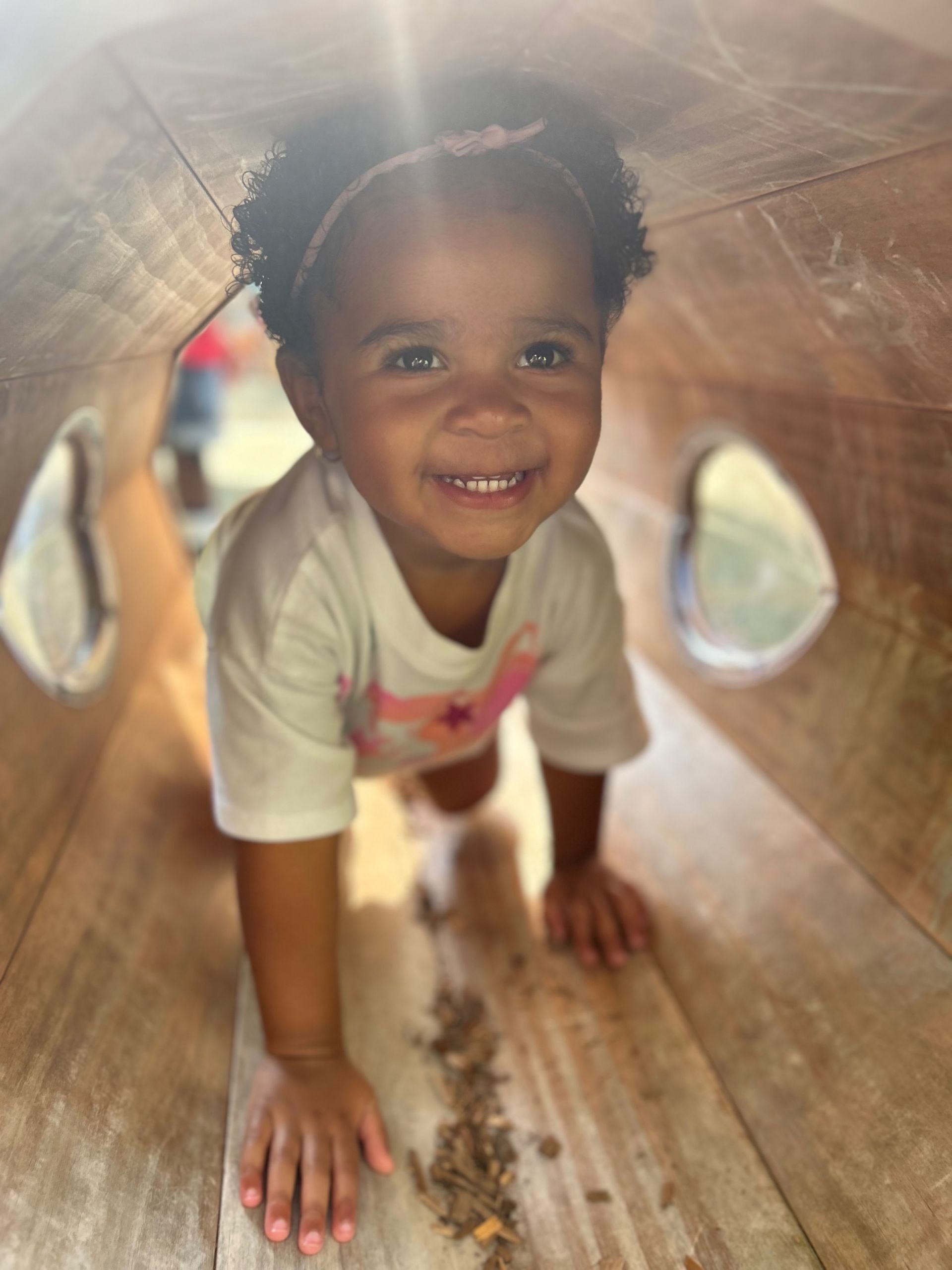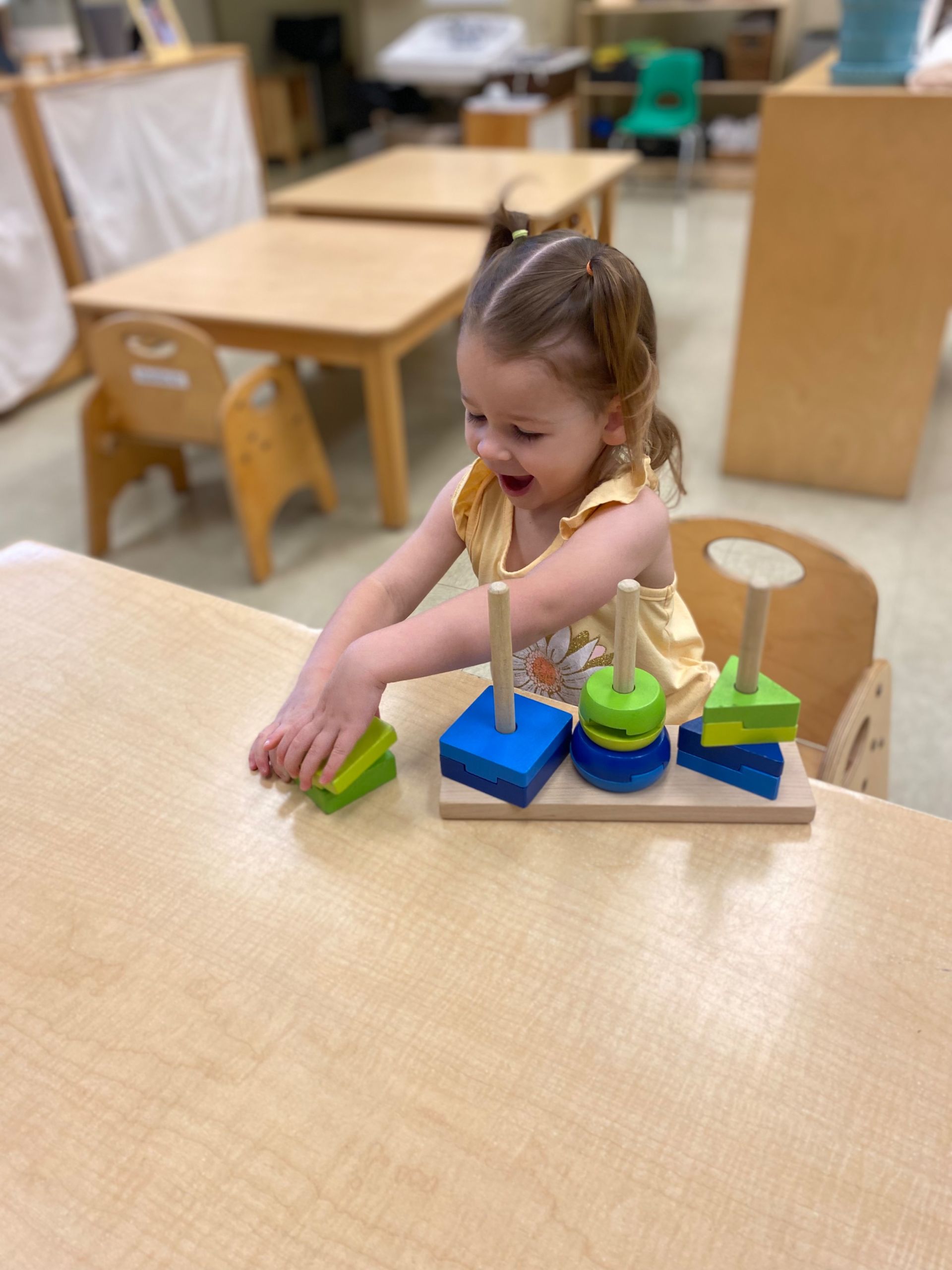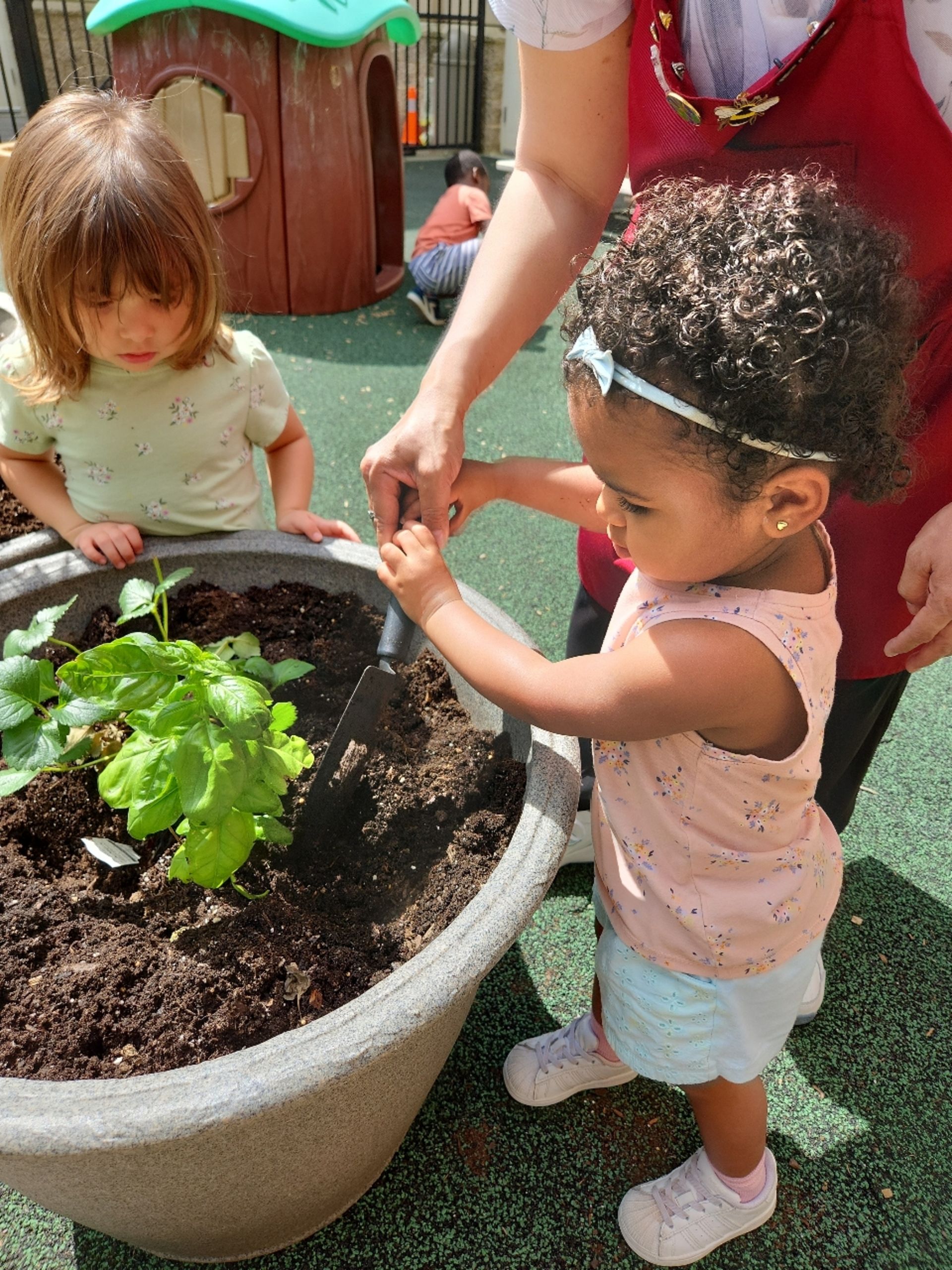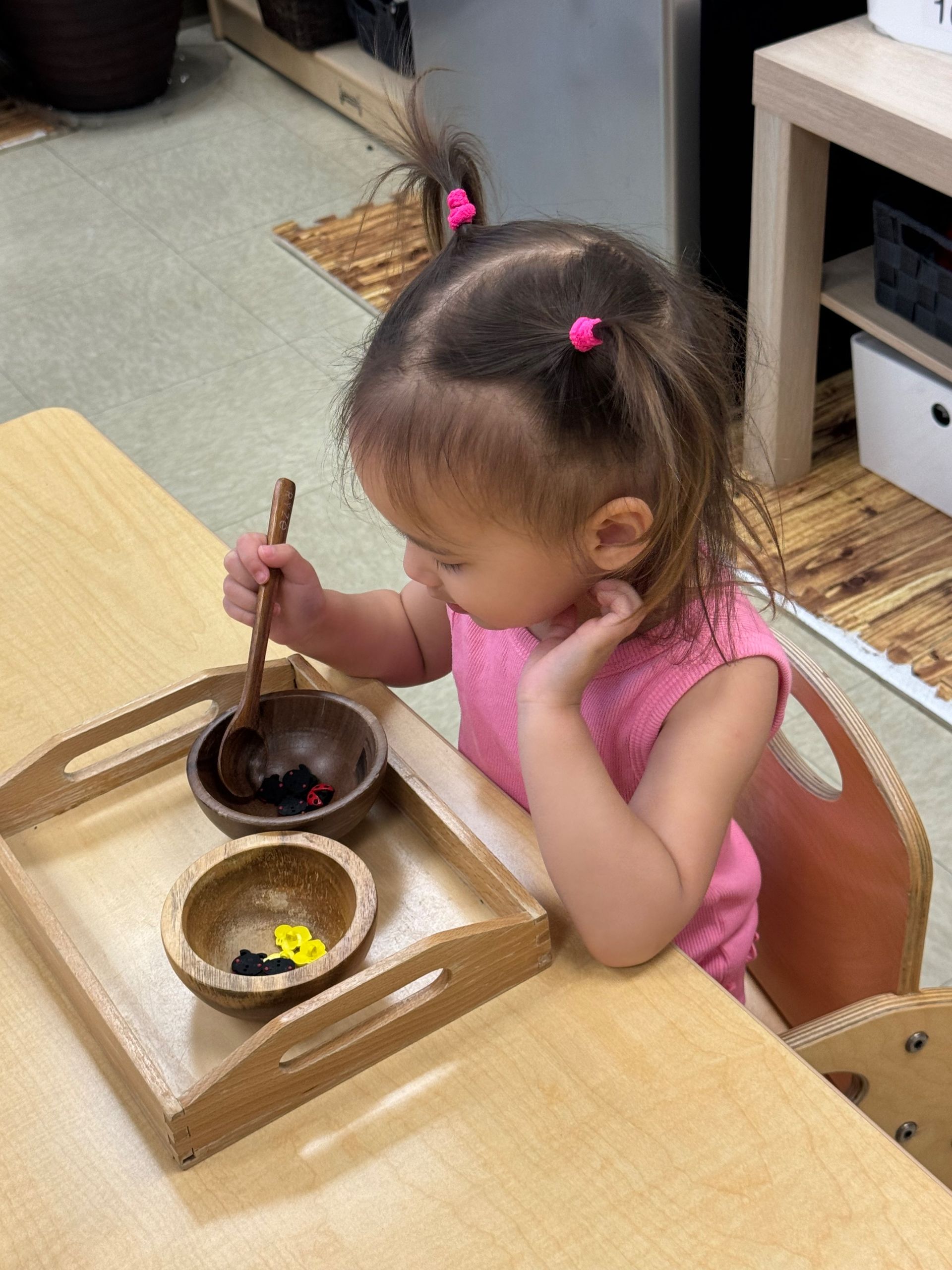Pre-Primary Program
An academic program for students 2 - 3 years.
In the Pre-primary Program at Bristow Montessori School, we aim to turn your child’s natural curiosity into positive learning experiences. This program takes advantage of the child’s natural drive to act independently. We utilize exercises and activities so children can learn by doing. It is during these first few years of life that the roots for a love of learning are established.
An Environment Conducive to Learning
This is what Bristow Montessori School strives to achieve for all its children, but the balance is most crucial in the pre-primary environment. Children of this age need a human and adaptable environment that responds to the individual child’s needs. The BMS pre-primary environment will include the following:
- Classroom materials are always accessible, attractive, safe, and geared for a child’s success
- Activities are changed regularly in response to children’s need for variety and challenge as they grow and learn
- A safe, loving and gentle atmosphere that puts children and parents at ease and makes for a trusting, spontaneous transition to school
- Teachers who work with children that have knowledge of how to nurture and to assist and distinguish between the assisting and the need to withdraw and stand back with confidence in the child’s abilities
- Furniture and materials are custom-sized to allow for the maximum exploration and development of the senses. The environment is modified as the child grows emotionally, physically, and intellectually
- Various multi-sensory, sequential, and self-correcting Montessori materials to facilitate learning. Materials for eye-hand coordination such as threading, bead stringing, cubes on pegs, spheres on horizontal pegs, puzzles, gluing, folding; and various practical life exercises, coloring, painting and cooking projects
- Space for movement, space for individual work, and space for group activities
- Access to a variety of opportunities for children to jump, climb, balance, or skip, through song and dance movement or outdoor activity
A Community
Children are able to develop relationships with adults and children outside his or her own family, and developing these relationships helps build social skills and helps the child start to understand her relationship to her community and environment. Empathy, compassion, sharing, getting along and mutual respect are all part of the social awareness and development that takes place at this time. Group activities foster cooperation and friendships as children learn the art of working and playing together.
“Help Me To Do It Myself”
Young children have a natural drive and inclination towards independence. They gravitate toward activities that develop motor skills: running, climbing, carrying, and grasping objects. Control of their own bodies heralds a control of self, and the ability to dress, eat, and toilet independently. Children are expected to take on greater responsibilities for taking care of themselves and others with the passage of time.
A Beautiful Environment
The environment emulates a home with sinks, toilets, shelves and activities which are all at the appropriate height to foster young children’s independence and self-reliance. Specialized activities are designed to stimulate your toddler’s physical, social and mental development. A typical day for your child would consist of individual indoor work time, snack time (a favorite of most), outdoor playtime, music, reading stories, lunchtime, nap time and other enrichment activities.
Absorbing Language
Children ages 2-3 are eager to learn the names of things and to understand which terms are situationally appropriate. They work tirelessly to increase their vocabularies and to expand their repertoire of sentence structures. Listening to stories, learning the names of plants, animals, and objects in their environment, and singing with their peers develops rich language skills.
Around the age of two, the child’s vocabulary explodes and their ability to structure sentences develops at a rapid pace. The Language materials in the Pre-Primary classroom encourages refinement of oral language as the initial stages of literacy to prepare students to learn to read and write.
A Joyful Experience
During the years your child spends at Bristow Montessori School’s Pre-Primary Program, your child will mature so many wonderful ways:
- Language. A 2-year old who enters our program will generally know between 0-50+ words. By the age of three, Pre-Primary children will have gained a vast understanding of hundreds of words and many children will have started to speak many of them, be able to ask questions, use less baby talk, and sing rhyming songs. The language skills are practiced through a variety of fun and engaging activities such as stories, poems, songs, picture cards, and even daily conversation.
- Motor Skills. In our Toddler community, children have a chance to develop their small motor coordination and are invited to complete activities that involve smaller muscles, such as using a zipper, buttoning their clothes, opening doors, watering plants, solving puzzles, serving snack for themselves (like buttering bread), etc.
- Independence & Social Skills: In the Pre-primary Program at Bristow Montessori School, we aim to turn your child’s natural curiosity into positive learning experiences. This program takes advantage of the child’s natural drive to act independently. We utilize exercises and activities so children can learn by doing. It is during these first few years of life that the roots for a love of learning are established. Dr. Montessori recognized the sensitivities of this age in the areas of independence, order, movement and language as the key elements in the child’s growth and development during this period.
Ready To Move Up
Sometime between the ages of 2 1/2 to 3 years of age, your child’s language skills and self-expression will develop rapidly; he will express a growing confidence in independence and a keen interest in broader concepts; he will want to know what lies ahead, outside of the Pre-Primary Classroom. At age 3, he is ready to move up to the Primary program, for children from the ages of 3 to 6.
Parent Reviews
"BMS has been wonderful. BMS isn't just a school but they've also become like family. The staff genuinely cares about the children and we couldn't be happier with their services."
— Parent of 4-year-old
"My daughter started at BMS when she was 4 months old. With every room my daughter transitions to the teachers are kind and truly care for her well-being. I would recommend this school to any parent without hesitation."
— Parent of 5-year-old




